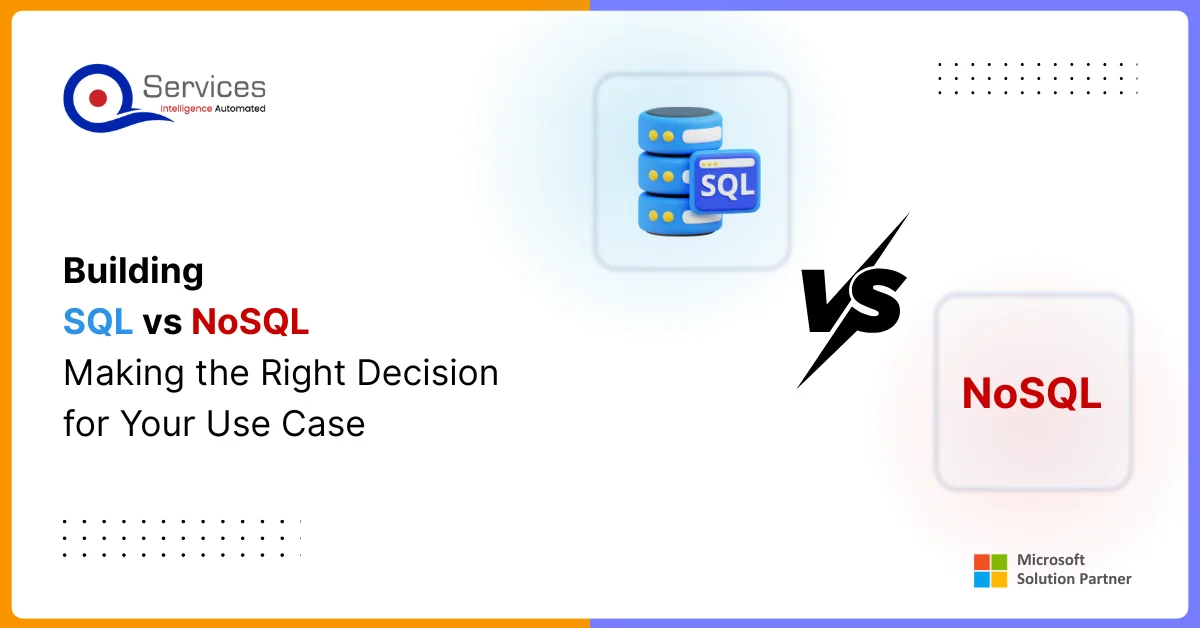
Home » Top 8 Ways Cloud Computing Can Optimize Your Supply Chain

What if your supply chain could adapt to market shifts as easily as a river flows? The demands on modern supply chains have never been higher. Consumer behaviour changes swiftly, e-commerce continues to disrupt traditional models, and global markets present constant unpredictability.
With cloud computing in supply chain management, you’re not just keeping up—you’re leading the way. Cloud-powered supply chains are faster, smarter, and more efficient, ensuring you stay agile, cut costs, and fulfil your promises—even in unpredictable markets.
Traditional supply chain management often faces key challenges, including limited inventory visibility, fragmented operations, slow decision-making, and escalating costs. These issues can hinder efficiency and responsiveness, making it harder to stay competitive.
If you’re still managing your supply chain with outdated systems, you’re probably feeling a bit overwhelmed. Poor visibility, slow decision-making, and rising costs are just some of the pain points. But cloud-based supply chain management software can totally flip the script.
With cloud computing supply chain management, everything’s streamlined and accessible in real-time. No more headaches from siloed operations or data delays. Cloud solutions help you stay agile, save money, and make better decisions on the fly.
In the next few sections, we’ll dive into 8 reasons why cloud-based supply chain management software is the solution you’ve been waiting for. From better visibility to smoother processes, these benefits are all about making your supply chain work smarter, not harder.
Without real-time access to data, managing your supply chain becomes quite diificult. Issues like stockouts, overstocking, and delayed deliveries often arise, impacting profitability and customer satisfaction.
Cloud based supply chain software gives you immediate access to live data—inventory levels, shipments, and supplier performance—across your entire network. With all this information in one place, you can make quick, better decisions to keep your operations run smoothly.
Real-time visibility helps you avoid costly disruptions. By tracking every stage of your supply chain, you can tackle issues early, maintain optimal stock levels, and ensure on-time deliveries.
Increased inventory accuracy
Faster response to disruptions
Reduced operational costs
Traditional supply chains often face the challenge of not sharing data across different partners or teams. When systems aren’t connected, it can lead to mistakes like running out of stock or not meeting customer demand on time. It also makes it hard to react quickly when something goes wrong because teams are not working with the same information.
Supply chain cloud solutions bring everything together in one spot. With cloud tech, suppliers, manufacturers, and retailers all have access to the same up-to-date information. This keeps inventory, orders, and forecasts on point, helping teams solve problems faster and keep things running smoothly.
The ongoing expenses of maintaining traditional supply chain systems—such as hardware, software, and IT services—pose a significant challenge for many small and medium-sized businesses. High ongoing costs drain a company’s resources, leaving little to invest in new growth or quickly respond to market shifts.
Cloud-based supply chain management software offers a much more affordable and flexible option. With no need for physical infrastructure, businesses can save money on hardware and IT support. Instead of large upfront costs, companies only pay for the services they need and use. This scalability allows businesses to grow at their own pace without the financial pressure of legacy systems.
An e-commerce company, struggling with high IT infrastructure costs and server maintenance, adopted a cloud-based solution. The change led to a major reduction in operational costs, freeing up funds to invest in market expansion. With the burden of managing physical servers lifted, they could scale their business more effectively and efficiently.
Managing things like inventory tracking, order processing, and handling paperwork can be a hassle and is often full of human errors when done manually. This slows down operations and can lead to mistakes that cost time and money, especially when businesses are growing fast.
Cloud-based supply chain planning simplifies automation by handling tasks like inventory updates and reordering automatically. There’s no need to manually track stock or stress about inventory levels—everything gets updated in real time. This makes operations run more smoothly and efficiently, reducing errors, and allowing businesses to grow quickly without getting bogged down in day-to-day tasks. With these processes automated, companies can focus on their long-term goals and expansion instead of constantly managing the details.
Get free Consultation and let us know your project idea to turn into an amazing digital product.
Ever found yourself overstocked with items that didn’t sell or out of stock on bestsellers? Traditional forecasting methods often miss the mark. That’s why businesses are turning to supply chain cloud computing for AI-driven predictions.
Cloud solutions use predictive analytics to study sales trends, seasonality, and customer behavior. Helping organizations plan smarter, avoid waste, and keep customers happy.
A manufacturing firm adopted cloud computing in supply chain management to forecast raw material needs. So what were the results out of it? They reduced waste by 15% and optimized production schedules, saving significant costs while boosting efficiency.
Traditional supply chain systems often require businesses to invest heavily in infrastructure just to keep up with expansion. Whether it’s adding new suppliers, expanding to new locations, or increasing product offerings, businesses find themselves shackled by a lack of flexibility in their IT systems.
Cloud supply chain management transforms the process by offering flexible and scalable systems. Supply chain management cloud software also allows businesses to adjust their supply chain operations quickly, integrating new suppliers or opening new locations without a massive capital outlay. Cloud technology allows businesses to scale efficiently, making rapid growth possible while maintaining operational control.
Keeping your supply chain running smoothly is all about proactive maintenance, especially for companies that rely on trucks, machines, and warehouses. Equipment breakdowns can cause huge delays and cost a lot of money—unplanned downtime can cost up to $260,000 per hour! Traditional maintenance is reactive, meaning things are only fixed after they break. But with cloud-based systems and IoT technology, companies can detect problems early and fix them before they cause disruptions.
IoT sensors on equipment allow cloud platforms to monitor performance in real-time. If there’s an issue, like a temperature spike or wear-and-tear, the system alerts the team right away. This means they can handle small problems before they turn into big ones. This proactive approach reduces downtime, lowers repair costs, and extends equipment life. Predictive maintenance can cut downtime by 50%, increase equipment lifespan by 30%, and reduce maintenance costs by up to 40%, helping businesses run more smoothly and efficiently.
In today’s digital supply chains, businesses face a growing number of security risks, including data breaches and the challenge of staying compliant with strict regulations like GDPR and PCI DSS. Protecting sensitive customer and financial data across a wide network of suppliers and partners has never been more critical to a company’s success. Cloud supply chain management software is a powerful tool for strengthening data security.
It uses advanced encryption techniques to safeguard data both in transit and at rest, while also providing businesses with centralized tools for managing access controls and compliance reporting. By automating compliance, businesses don’t have to worry about falling behind on regulations or getting hit with fines. It also helps prevent security risks and keeps everything running smoothly.

Cloud-based solutions are changing the way supply chains operate, making processes like forecasting, downtime reduction, and collaboration much smoother. The 8 strategies we’ve discussed show how businesses can cut costs, scale operations more easily, and ensure their data is safe, setting the stage for long-term success. As industries continue their digital transformation, the cloud will continue to drive the success of modern supply chains. Whether you’re a small startup or a large corporation, adopting cloud supply chain management can provide the flexibility and efficiency needed by organizations to stay ahead.

Pipeline failures can be expensive and harmful to the environment. Companies are using IoT applications in the oil and gas industry to prevent these breakdowns and stay ahead of problems.
![Azure IoT vs AWS IoT vs Google IoT Pricing: Feature Comparison Chart for Enterprise [2025]](https://www.qservicesit.com/wp-content/uploads/2025/03/Microsoft-Teams-vs-Slack-vs-Zoom-TCO-Analysis-for-Enterprise-Organizations-2.webp)
The Internet of Things (IoT) helps businesses run better by connecting devices, collecting information, and improving choices. But picking the best IoT cloud provider can be confusing. The main three are AWS IoT vs Azure IoT vs Google IoT.

In this blog, we’ll explore how these advances are shaping the future of field services and how companies are adapting to stay ahead in a competitive market. What are the key changes that businesses need to embrace to stay relevant and efficient?
Cloud computing in supply chain management refers to the use of cloud-based technologies to manage and optimize various supply chain processes. This includes data storage, real-time analytics, and automation of operations, allowing businesses to enhance visibility, collaboration, and efficiency across their supply chains.
By eliminating the need for extensive hardware and reducing operational expenses, cloud computing allows companies to avoid significant upfront investments. This cost-effectiveness is achieved through a pay-as-you-go model that scales with business needs, optimizing resource usage and minimizing waste
Cloud-based systems provide real-time access to data across various stages of the supply chain, including inventory levels, order statuses, and logistics tracking. This enhanced visibility helps businesses identify trends, bottlenecks, and potential issues early, allowing for informed decision-making and swift problem resolution
Cloud solutions centralize data and communication channels, facilitating seamless collaboration among suppliers, manufacturers, and distributors. This unified approach ensures that all parties have access to the latest information regarding orders, inventory levels, and payment details, leading to improved coordination and faster issue resolution
Automation is a key benefit of cloud computing that streamlines various supply chain operations such as order processing, inventory tracking, and invoicing. By automating these tasks, businesses can reduce manual errors, increase efficiency, and free up resources for more strategic activities
Cloud platforms allow businesses to scale their operations up or down based on demand fluctuations without the need for significant infrastructure changes. This flexibility is crucial for adapting to market conditions and customer needs quickly while maintaining service quality
Yes, cloud computing offers robust disaster recovery solutions that include automated backups and geo-redundant storage options. These features ensure that critical supply chain systems remain operational during disruptions or failures, minimizing downtime and protecting business continuity

Founder and CEO

Chief Sales Officer
